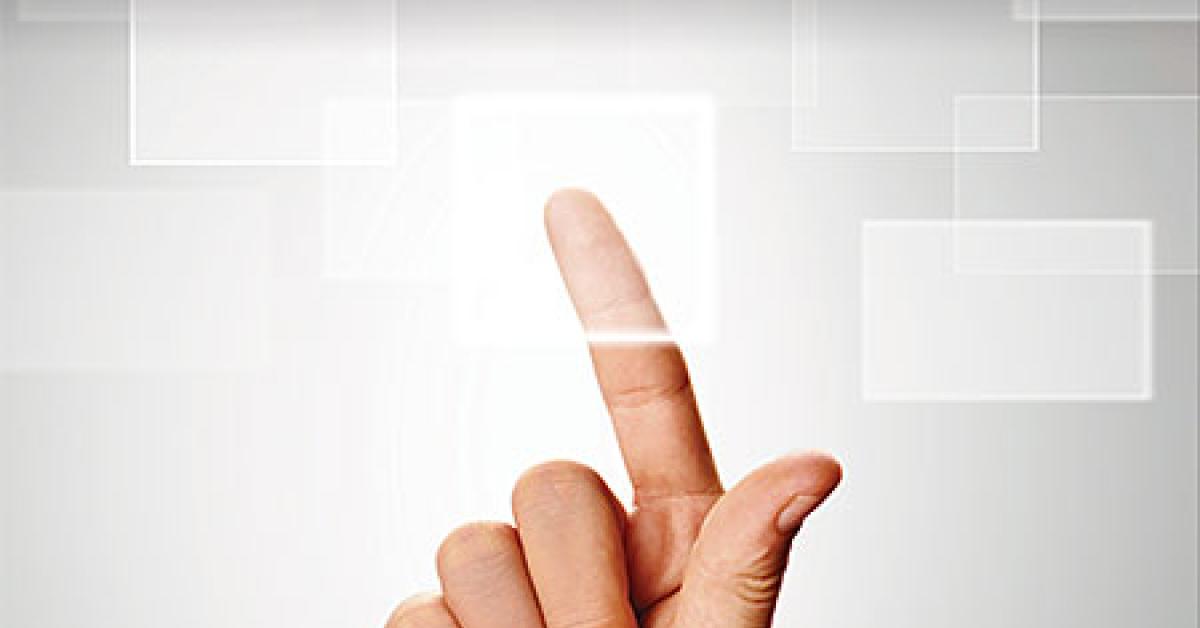CHICAGO — Today’s point of sale systems marketed to dry cleaners are capable of performing a sizable number of tasks, all in the interest of streamlining plant/store operations and keeping customers happy and engaged.
But just what have POS systems meant to the drycleaning industry since their arrival? What separates the POS systems that are on the market? How has the proliferation of smartphones and tablets impacted POS development?
American Drycleaner recently invited drycleaning POS vendors to analyze the technology and describe how these systems so capably keep their virtual finger on the pulse of today’s dry cleaner.
Q: How have point of sale systems changed the drycleaning industry since their introduction?
Tim Woodman, Cleaner Business Systems: Drycleaning operators are now able to provide their customers with a much higher level of service … Utilizing the Internet opens up a direct line of communication to the customers by being able to reach them via e-mail for marketing purposes or to let them know that their order is ready to be picked up. The point of sale system has also created several new markets in the drycleaning industry and paved the way for companies to create valuable tools for our customers, such as the auto assembly conveyor and 24-hour pickup and drop-off kiosks.
Wayne Thomas, CleanSuite: I don’t know how it might have changed the industry but we’ve made a big difference in [a dry cleaner’s] lifestyle. They’re making more money, they have more control of the business, and more free time.
Kim Jensen, Comca: Huge impact. It has helped increase profits, because it prevents theft. Prevents garments lost. Helps to provide better service to customers.
KJ Sung, Computer Connections (WinCleaners): Since the introduction of POS systems, there have been improvements in operational efficiency, accurate pricing controls, and improvements in inventory controls, reducing claims for missing garments, and tracking employee activities to help prevent theft.
Ali Khan, Dajisoft: POS systems have changed the business aspect and the life aspect of a dry cleaner significantly. I remember when I used to work for a dry cleaner, the paperwork that used to take me at least one hour now takes only a few seconds. Our nightmare used to be when our plant would misplace a blue blouse; it used to take us hours and hours to look for it. Now it takes them seconds to know who else brought in a blue blouse that we might have mistakenly given it to. In other words, POS systems have taken away much of the headaches from a business owner.
Lenny Gershater, DCCS: POS systems have made major strides in automating an industry that was extraordinarily labor-intensive, extremely manual and technologically weak. We’ve been able to continually reduce costs and increase profits by giving our customers the technological tools to manage the business with greater confidence and make better decisions than anytime before.
Mark Van Buren, Fabricare Management Systems: More data can be stored and more diverse types of data captured. Faster computers allow clerks and users to work faster. Integration with production speeds production and lowers labor costs. E-mail and texting capabilities enhance and bolster marketing, social media and billing efforts.
Doug Walton, Liberty Computers: Back in the late ’80s when we started our company, systems were somewhat limited by the technology available. However, it still provided pricing, billing and inventory control. Today, we do the same, but with touchscreen technology, it has become easier and quicker to accomplish.
Evaz Fanaian, Scan Q: POS systems have changed the drycleaning industry by speeding up customer service, marketing, reducing man hours, and keeping track of business. The bottom line is better service to the end-user, [fewer] employees and greater profit margin.
Mike Wilde, SPOT Business Systems: Reduced loss from theft, automated marketing with customer activity tracking, decreased labor cost, [and] increased profitability due to improved efficiencies of production.
Joe McCammon, Maineline Computers (Compassmax): When they were introduced, they had the basic “cash drawer” functionality, reporting, and some basic customer information. Now, the data mining, the e-mailing of customers, assembly conveyors … they’re much more robust and full-featured than they were in the beginning.
Q: How is a point of sale system better than an electronic cash register, or is it?
Evaz Fanaian, Scan Q: A cash register has no capability of keeping a database, compiling notifications and reports, managing statements, providing inventory counts, etc. With a POS system, your company’s status is easily assessed. You have the pulse of your business in your hand, and can anticipate and plan the growth of your business. In addition, errors such as missing cash or garments and/or incorrectly delivered garments can be quickly detected to the day, hour, minute and clerk.
Mike Wilde, SPOT Business Systems: Electronic cash registers are typically hardcoded to perform a very limited function. They contain no intelligent decision-making capabilities and do nothing to enhance operational efficiency. POS systems, by contrast, contain intelligence built into its software to enhance operational efficiency; automate manual processes; reduce employee graft; reduce labor cost; and integrate ancillary services such as routes, hotel valet, wholesale processing, restoration services, etc. POS systems are tailored to solve specific operational issues encountered by the dry cleaner and are easily reprogrammed to meet future demands as needs change or evolve.
Ali Khan, Dajisoft: There is no comparison between the both. A cash drawer is cheaper to purchase than a POS system but it does not at all solve your problem(s) when they arise. The only report that a cash drawer can give you is what’s called a “Z” report, where it only tells you how much money you have received. With POS systems, the reports and its knowledge is endless. A cash drawer will never help you with your marketing but a POS system will.
Doug Walton, Liberty Computers: Cash registers can do only one thing. The POS controls pricing, employee theft, billing, inventory, routes, marketing and so much more. In this day and age, we all have a limited amount of time to grow our businesses, and a POS can get the job done in the background or with a click of a few buttons.
Tim Woodman, Cleaner Business Systems: You can keep detailed reports, prevent employee theft, track your store’s inventory, give consistent and accurate pricing to your customers, and monitor your store’s sales trends and activity. POS systems have made it easier to manage employees from being able to keep track of employee hours and scheduling employees based on the store’s activities. Operators can use the data gathered by their point of sale system to confidently make important business decisions, whereas an electronic cash register is basically just a calculator with a printer and cash drawer attached [and] does not retain any useful information for the business.
Kim Jensen, Comca: POS has more usable features that prevent theft and/or loss of garments. Tracks customers’ data. More and more customers are technically inclined and like different options like being able to e-mail, texting, tweeting, etc. … A cash register has very limited options.
KJ Sung, Computer Connections (WinCleaners): A POS system gives more detailed reports, better track of inventory, improves accuracy and easily grows with business.
Check back Thursday for Part 2!
Have a question or comment? E-mail our editor Dave Davis at [email protected].

